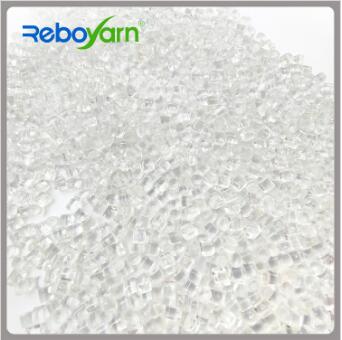Are there any challenges associated with the use of recycled polyester chips in certain applications?
2023-10-17
While recycled polyester chips offer numerous environmental benefits and are suitable for many applications, there are certain challenges and considerations associated with their use in specific industries and products. Some of the challenges include:
1. Quality and Consistency: The quality and consistency of recycled polyester chips can vary depending on the source and processing methods of the recycled materials. Achieving a consistent quality comparable to virgin polyester may require strict quality control measures and material sorting.
2. Color Variability: Recycled polyester chips may have variations in color due to the diverse sources of recycled materials. This can be a challenge when producing products that require uniform color, such as textiles or packaging.
3. Limited Availability: The availability of high-quality recycled polyester chips may be limited in some regions or for certain grades and specifications, making it challenging for manufacturers to secure a consistent supply.
4. Contaminants: Contaminants from the recycling process or residual impurities from the source materials can affect the purity of recycled polyester chips. These contaminants may need to be removed or mitigated to meet specific industry standards.
5. Mechanical Properties: In some applications, such as textiles and fibers, the mechanical properties (e.g., strength, elasticity) of recycled polyester may differ slightly from those of virgin polyester, which can affect product performance.
6. Certification and Traceability: Ensuring that recycled polyester materials meet specific sustainability or quality standards may require certification and traceability throughout the supply chain, which can be challenging to establish and maintain.
7. Compatibility with Existing Equipment: Manufacturers may need to adapt or modify their production equipment and processes to accommodate recycled polyester chips, as they can have different characteristics compared to virgin materials.
8. Consumer Perception: In certain markets, consumers may have misconceptions about the quality or durability of products made from recycled materials, which can impact their purchasing decisions.
9. Cost Considerations: While the cost of recycled polyester chips can be competitive with virgin materials, some specialized recycling processes or certifications may result in higher production costs.
10. Limited End-of-Life Options: At the end of a product's life cycle, recycling polyester materials can be challenging due to the presence of mixed materials (e.g., zippers, buttons) or contamination, limiting the feasibility of closed-loop recycling.
11. Durability in Harsh Environments: Recycled polyester may be less durable in extremely harsh environments or chemical exposures compared to specialty materials, which can limit its use in specific industrial applications.
12. Regulatory Compliance: Compliance with environmental regulations, especially concerning the recycling process and handling of waste materials, can be complex and may require continuous monitoring and reporting.
To address these challenges, industries and manufacturers are working to improve recycling technologies, develop stricter quality control measures, and promote awareness of the benefits of recycled materials. Additionally, standards and certifications for recycled content and sustainability are being established to ensure the reliability and performance of recycled polyester chips in various applications.



